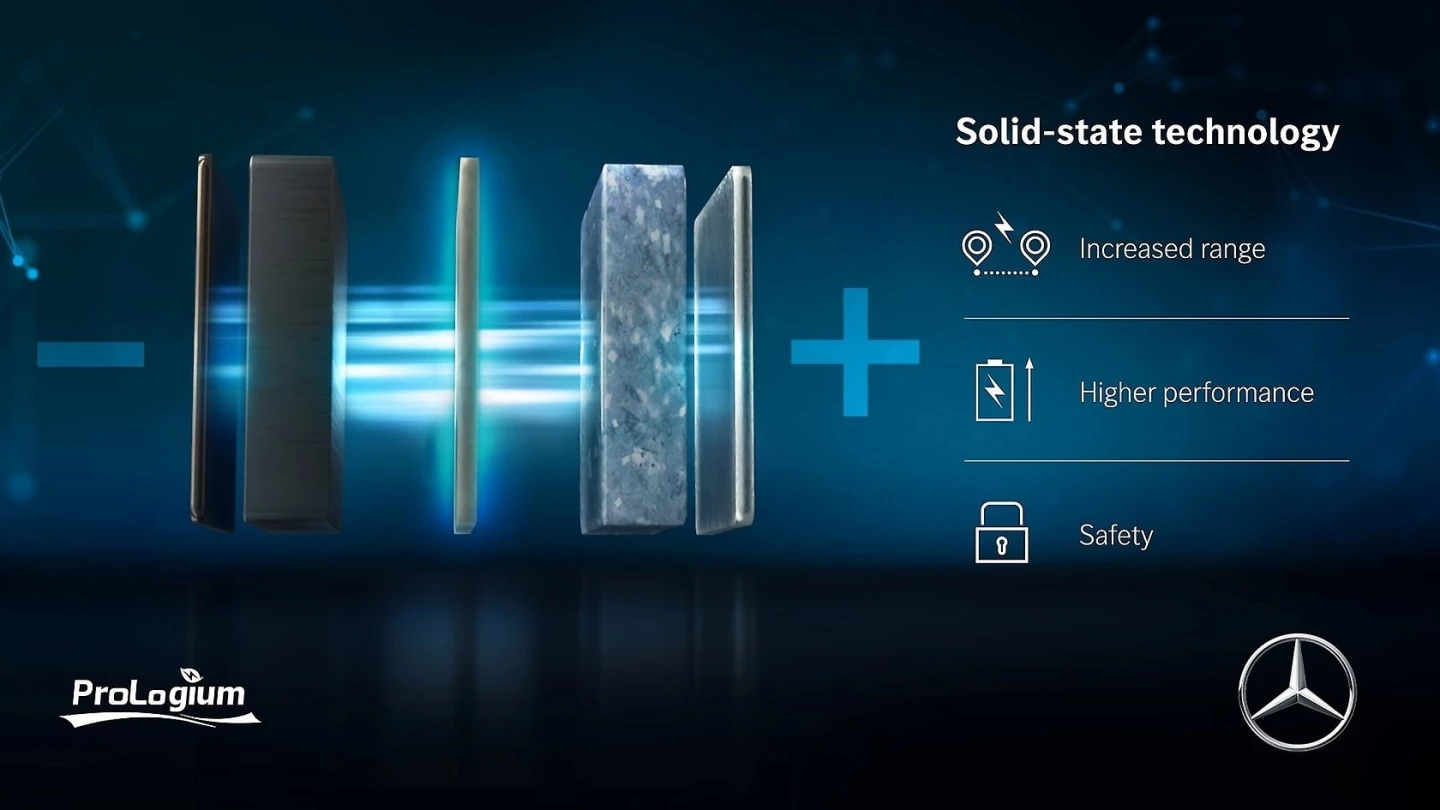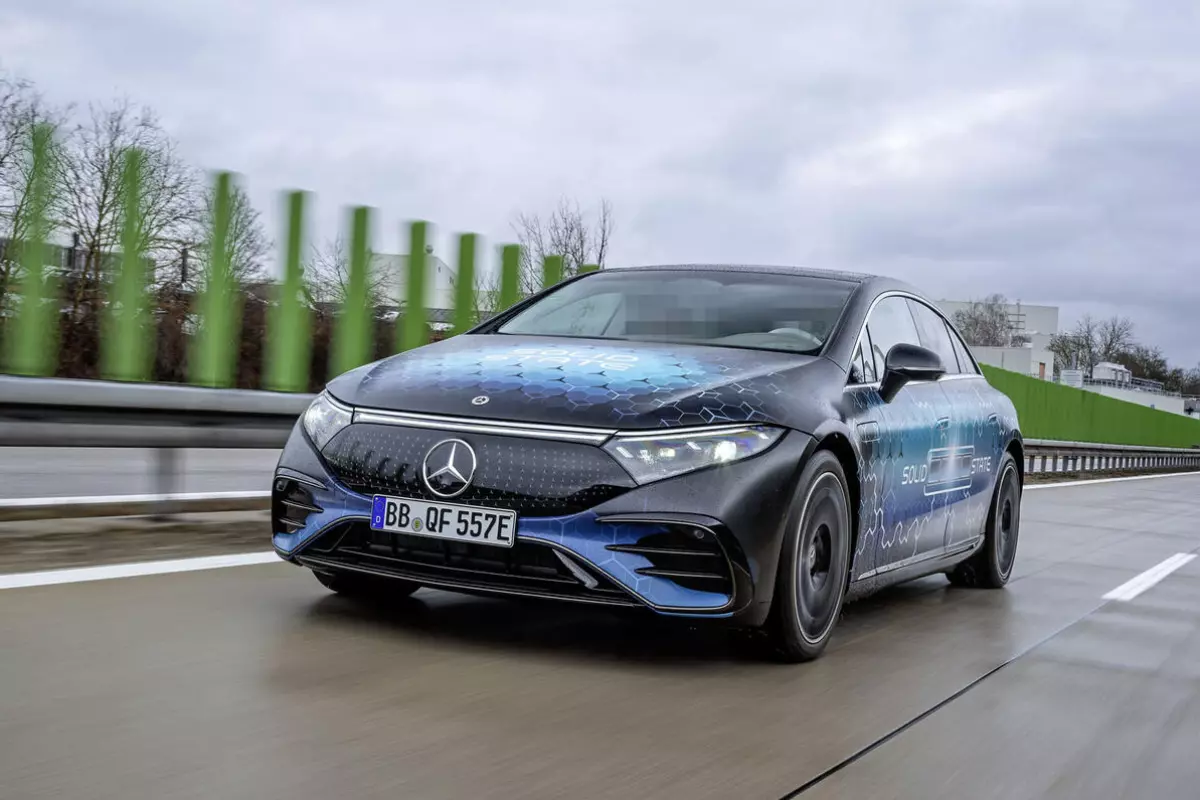It’s no secret that solid-state batteries have the potential to be the next big thing in the electric vehicle industry, but their mass-market adoption has been dragged down by reliability concerns. That hasn’t stopped carmakers from carrying out more research on the technology, though.
And Mercedes-Benz is at the very pinnacle of that effort. The German giant is already testing its own solid-state batteries for its EVs with a range of over 620 miles (1,000 km) on a single charge.
The new battery technology, which promises increased driving range, quicker charging, and efficiency, is being developed by the carmaker in collaboration with US-based Factorial Energy. Mercedes’ first production car to employ such a battery will likely be rolled out by the end of the decade.

The battery was tested by Mercedes on an EQS sedan in the UK, with minor adjustments to make room for the larger pack primarily involving rebuilding the battery housing. In the prototype, Mercedes-Benz's Formula 1 engineers in Brixworth built pneumatic actuators for a floating cell carrier inside the enclosure. This mechanism controls how the materials inside the battery cells expand and contract during charging and discharging – for increased stability and longevity.
Mercedes stated that the 12-module battery housing of the EQS was versatile enough for various configurations, even though its full specifications are still pending confirmation.

Mercedes estimates a 25% increase in driving range with the new battery. The EQS prototype is currently a 450+ saloon with up to a range of 511 WLTP miles (822 km) suggesting a real-time driving range of more than 620 miles when the EV finally comes out.
The current EQS 450+, for comparison, is powered by a 118-kWh Li-ion battery with a range of 352 miles (566 km).
But if solid-state batteries are so great, why are they not already being used? The main reason is because of their propensity to crack as they expand and contract during a charging cycle. This results in dendrites, which may lead to battery short circuits. Because of this, lithium-ion batteries continue to be the most dependable, long-term option for EV powering – at least as of now. But in the case of Factorial’s battery, there’s a solid electrolyte based on sulfide that makes its solid-state battery safer and more effective.
Mercedes-Benz is also making headway on the development of new-generation silicon carbide inverters and power electronics in addition to the new battery technology. They are now being developed at AMG High-Performance Powertrain in Brixworth to improve performance and power efficiency for the company's upcoming vehicles.

It was last year that Factorial delivered the first solid-state battery cells based on its proprietary FEST (Factorial Electrolyte System Technology). Then, in September 2024, Mercedes and Factorial went on to introduce the more sophisticated all-solid-state Solstice battery.
As per Factorial, the new Solstice battery is projected to offer 80% more driving range than existing lithium-ion batteries thanks to its "breakthrough" energy density of 450 Wh/kg.
In comparison to traditional Li-ion batteries, these solid-state batteries can reduce the overall weight by 40%, according to Factorial. The Solstice, for example, weighs 580 lb (263 kg), which is 33% less than a typical 90-kWh battery.
Factorial celebrated a significant accomplishment in December last year when its Solstice all-solid-state battery cells reached a 40-Ah capacity. The company is also collaborating with other significant automakers, such as Hyundai and Stellantis, to further develop solid-state battery technology.
Given that Honda has already made its pilot production line public in November of last year, the next few months are going to be crucial for solid-state battery tech. Hyundai plans to launch a demonstration line of all-solid-state EV batteries in March.

A fleet of electric Dodge Chargers that run on Factorial's solid-state batteries will be introduced by Stellantis in 2026, the company recently stated. Also, keep in mind that BYD and CATL, the two biggest EV battery manufacturers in China, are also vying to launch their own set of solid-state batteries.
As the race for battery technology hots up, it will be interesting to see what the EV naysayers will have to say. Battery range has always been one of the biggest reasons for skeptics to stay away from EVs.
Who knows, a 500+ mile real-world range battery might just be a nail in the coffin for ICE vehicles.
Via: Mercedes-Benz






